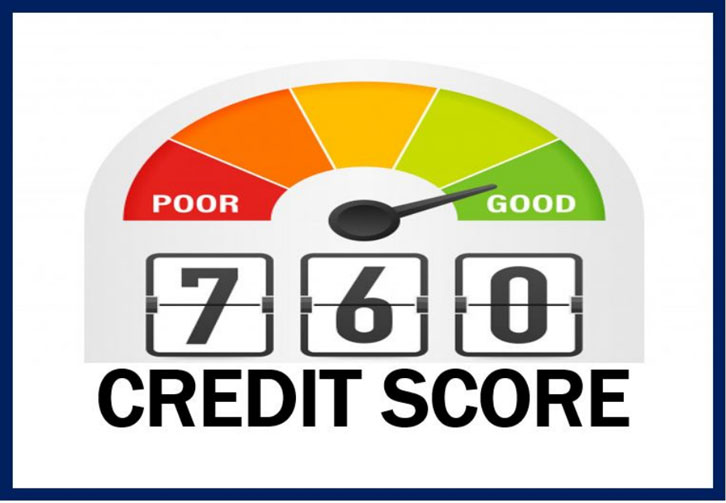In What Ways Is a Credit Score of 760 Useful?
Jan 15, 2023 By Triston Martin
Congratulations, you've arrived! At 760, you're getting close to the top tier of creditworthiness, according to FICO. That number is on your credit report, not you specifically. OK, you're pretty great yourself, I guess. What to do after receiving that reassuring credit score of 760? If everything is rosy in your credit world, there's not much you can do. But now is a fantastic opportunity to better your financial life. Consider these options for saving funds if you have attained a credit score of 760. So, here is what can you do with a 760 credit score.
What to Do After a 760 Credit Score?

Improve Your Credit Card Terms by Bargaining
Your APR is certainly too high if you filed for credit cards while your credit rating was 670 and even 700. You should contact the issuer and let them know that you have worked very hard to raise your credit score to an excellent level. How many credit card offers have you gotten recently? Financial organizations pay attention to new credit categories as your score rises. If the issuer is resistant to your request for a reduced APR over the phone, mention that you have received offers for similar cards from other companies with lower APRs. Similar to going on a date in several ways. When your services are in high demand, everyone wants to hire you. You may need to use some negotiating muscle to get the best interest rates, therefore, do not be shy.
Upgrade Your Credit Card
Is there a credit card you already have that is no longer useful because of your improved credit history? This may be the case if you still use a secured card or a card designed for those with average or below-average credit. You may request a brand-specific update. One scenario: you've been eyeing the Chase Sapphire Platinum Card for a while because of your desire to earn travel rewards. Please remember to consider the yearly cost while applying for elite rewards cards. If you use the card responsibly, you should earn more in benefits than the card's annual charge.
Refinancing Your Mortgage Can Help You Pay Less Each Month.
If your FICO score is currently low, perhaps around 620, raising it to a more respectable level, such as 760, may result in annual interest savings of thousands of dollars. Putting your money into a savings account for unexpected expenses is a good idea. Your potential for cost savings is, of course, tied to your credit rating at the time you obtained your present mortgage. If you refinance, do not really fail to incorporate application, origination & closing expenses.
Consider Reevaluating Your Current Automobile Insurance Rates
Credit scores and insurance premiums aren't well known. Give your agent a call right away and request to be reviewed for reduced prices if you have had your existing auto insurance during your days of bad credit. However, not all Americans have access to this money-saving alternative because of laws that ban or severely restrict vehicle insurance from evaluating credit history.
Maintaining a 760 Credit Score
Get over your jealousy of other players' scores. A good credit score is within reach for everybody. The fundamentals are as follows.
The Timely Payment Of All Invoices Is Expected.
Your credit score relies 35% on how timely you have been with your payments. A single late payment that is submitted to credit agencies might result in a significant decrease in credit scores. To ensure you never fall behind on payments, set up either automated payments or alerts.
Keep A Diverse Credit Profile.
Ten percent of your overall FICO score is based on this. Revolving credit is often represented via credit cards. An installment loan would be an auto loan. Not that you should immediately run out and purchase a brand new automobile, but take this into consideration if and when the necessity for financing ever arises.
Maintain your credit card accounts.
Your credit history accounts for 15 percent of your overall score. Closed accounts might remain on your credit record for up to ten years. But you shouldn't cancel your credit card unless you have a very good cause too. Unfortunately, this means that you will no longer have access to any funds linked with that card. A higher credit usage ratio is one factor that might lower your credit score.
Establish A Budget And Monitor Your Expenditures.

It's likely that you'll overspend if you don't keep tabs on your money. Your ability to spend money in a certain area should be outlined in a budget. And keeping tabs on your expenditures will ensure that you stick to that budget. The accumulation of credit card debt may be avoided by not doing either of these things.
Prevent Fraud By Being Proactive.
Do your best to keep your score from dropping after all your efforts. Credit card details theft and identity theft go hand in hand since con artists may use either to charge you. A rapid drop in your score is often the first sign that anything is wrong. It's important to keep a close eye on your digital accounts for signs of fraud. Review your free yearly credit reports for unopened accounts.
-
![]() Investment
InvestmentKeep part of the profits as the backup cash
Edward Weston Apr 17, 2021
-
![]() Banking
BankingUse Either PayPal Or A Credit Card
Triston Martin Sep 21, 2022
-
![]() Banking
BankingIn What Ways Is a Credit Score of 760 Useful?
Triston Martin Jan 15, 2023
-
![]() Mortgages
MortgagesHow Treasury Notes Impact Mortgage Rates: What You Need To Know
Susan Kelly Sep 22, 2022
-
![]() Banking
BankingWhat Are the Reasons to Say No to Credit?
Triston Martin Aug 31, 2022
-
![]() Investment
InvestmentTop 3 Index Funds For Investors With A Long-Term Perspective
Triston Martin Oct 28, 2022
-
![]() Mortgages
MortgagesHow to get out of debt with credit cards
Susan Kelly Oct 29, 2022
-
![]() Taxes
TaxesHow To Fix Incorrect 1099 Form
Susan Kelly Jun 09, 2023







